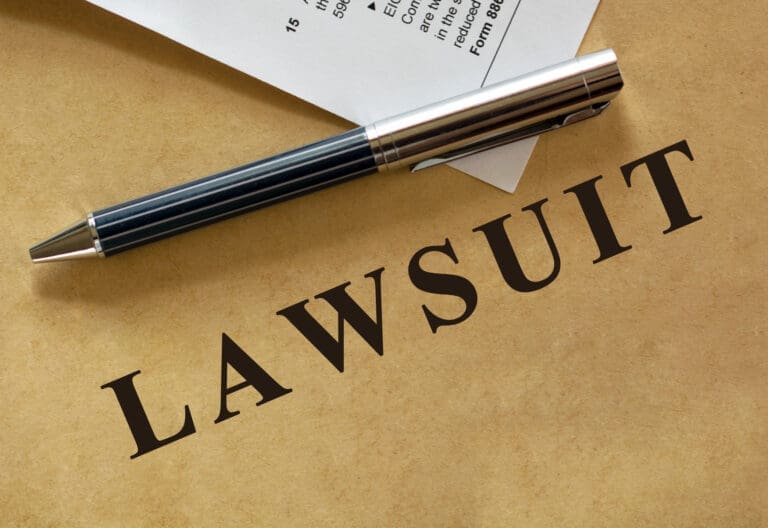
Choosing the right lawyer for your legal matter constitutes one of the most consequential decisions you will make. The attorney you select will significantly influence the trajectory of your case, potentially determining its ultimate outcome. This decision warrants careful consideration of multiple factors, including the lawyer’s expertise, reputation, communication style, and fee structure. A methodical approach to this selection process serves your interests most effectively.
The legal profession continues to evolve rapidly in response to technological advancements and changing client expectations. As of 2025, the integration of artificial intelligence, remote work options, and specialized practice areas has transformed how legal services are delivered. Understanding these developments can inform your selection process and help you identify attorneys equipped to navigate contemporary legal challenges.
This examination of selección de abogados criteria aims to provide a framework for evaluating potential legal representatives. By understanding the essential qualifications and asking appropriate questions, you can make an informed decision that aligns with your specific legal needs and personal preferences. The right attorney not only possesses the necessary legal knowledge but also demonstrates a commitment to your case and communicates effectively throughout the representation.
Understanding Your Legal Needs
Before beginning your search for legal representation, you must clearly identify the nature of your legal issue. Legal practice has become increasingly specialized, with attorneys focusing on specific areas of law rather than maintaining general practices. This specialization trend has intensified in recent years, making it essential to match your legal matter with an attorney who possesses relevant expertise.
Legal specialization has become the norm rather than the exception in the profession. Much like medicine, where patients seek cardiologists for heart conditions rather than general practitioners, legal matters require specialized knowledge. An abogado who primarily handles divorce cases may lack the expertise necessary for a complex business dispute or criminal defense. Identifying the specific area of law relevant to your situation constitutes the first critical step in finding appropriate representation.
The complexity and potential consequences of your legal matter should inform your selection criteria. Routine legal issues with limited financial implications may not require the same level of specialization as high-stakes litigation or complex transactions. Nevertheless, even seemingly straightforward matters can benefit from specialized knowledge, particularly when unexpected complications arise. A realistic assessment of your legal needs provides the foundation for an effective attorney search.
Research and Referrals
The research phase represents the initial step in identifying potential attorneys for your consideration. This process ideally begins with personal referrals from trusted sources who have firsthand experience with legal representation. Friends, family members, and business associates who have faced similar legal issues can provide valuable insights about their experiences with particular attorneys.
Attorney referrals from personal connections offer several advantages over impersonal search methods. These recommendations typically come with detailed information about the attorney’s communication style, responsiveness, and effectiveness—qualities difficult to assess from professional credentials alone. Additionally, personal referrals often include insights about the attorney’s approach to client relationships, which significantly impacts the representation experience.
When personal referrals prove insufficient, state bar associations and online resources provide alternative methods for identifying potential abogados. Most state bar associations maintain referral services that can connect you with lawyers practicing in specific areas. Online directories and rating services offer additional options, often including client reviews and professional credentials. These resources should be viewed as starting points for further investigation rather than definitive assessments of attorney quality.
Evaluating Experience and Expertise
An attorney’s experience in handling cases similar to yours constitutes perhaps the most critical qualification for effective representation. This experience encompasses not merely years of practice but specific involvement with comparable legal issues, procedural contexts, and opposing parties. During initial consultations, you should inquire directly about the attorney’s relevant experience.
Legal experience in your specific type of case provides numerous advantages. Experienced attorneys understand the substantive law, procedural requirements, and strategic considerations relevant to your matter. They can anticipate potential challenges, identify appropriate solutions, and navigate the legal system efficiently. This expertise often translates into more favorable outcomes and cost-effective representation.
Beyond general experience in a practice area, consider whether the attorney has handled cases involving similar facts, legal issues, and opposing parties. An abogado who has previously litigated against your opponent may understand their negotiation tactics and litigation strategies. Similarly, experience with a particular judge or court can provide valuable insights about procedural preferences and decision-making patterns. This specialized knowledge can significantly influence case strategy and outcomes.
Assessing Reputation and Professional Standing
A lawyer’s professional reputation provides important indicators about their competence, ethics, and effectiveness. This reputation develops through interactions with clients, opposing counsel, judges, and other legal professionals. Several methods exist for evaluating an attorney’s standing within the legal community and among former clients.
Professional reputation can be assessed through various sources, including peer recognition programs, client reviews, and disciplinary records. Peer-based rating systems like Super Lawyers, which selects the top 5% of attorneys in each state through a patented selection process, provide one measure of professional standing. These programs typically evaluate factors such as verdicts and settlements, experience, honors and awards, and bar activities.
Before finalizing your selection, verify the attorney’s disciplinary history with your state’s attorney regulatory organization. Most states maintain publicly accessible databases of attorney disciplinary actions. The absence of disciplinary history does not guarantee quality representation, but past ethical violations raise significant concerns about an attorney’s judgment and professionalism. This verification represents a necessary due diligence step in the selection process.
Communication and Compatibility
The attorney-client relationship requires effective communication and personal compatibility. During initial consultations, evaluate whether the attorney explains legal concepts clearly, listens attentively to your concerns, and responds thoughtfully to your questions. These interactions provide valuable insights about how communication will function throughout the representation.
Attorney-client communication significantly influences both the experience and outcome of legal representation. Effective communication ensures you understand the legal process, available options, and potential consequences of different approaches. It also enables the attorney to develop strategies aligned with your objectives and expectations. Communication breakdowns frequently lead to client dissatisfaction, regardless of case outcomes.
Personal compatibility with your attorney facilitates productive collaboration throughout the representation. You should feel comfortable discussing sensitive information, asking questions, and expressing concerns. While attorneys need not become personal friends, a basic level of trust and rapport promotes effective representation. Consider whether the attorney demonstrates respect for your perspective and genuine interest in your legal matter during initial interactions.
Understanding Fee Structures
Legal representation involves significant financial considerations that should be clearly understood before engagement. Attorneys employ various fee structures depending on practice areas, case types, and firm policies. Understanding these arrangements helps you assess affordability and avoid unexpected financial obligations.
Legal fee structures typically fall into several categories: hourly rates, flat fees, contingency arrangements, and retainers. Hourly billing remains common for litigation and complex matters, with rates varying based on attorney experience, geographic location, and firm size. Flat fees often apply to routine matters with predictable work requirements, such as simple wills or uncontested divorces. Contingency arrangements, where the attorney receives a percentage of recovery, typically apply in personal injury and certain other litigation contexts.
Fee agreements should address not only the basic compensation structure but also responsibility for costs and expenses. These expenses may include filing fees, expert witness fees, deposition costs, and document reproduction charges. Some attorneys require clients to pay these expenses directly, while others advance costs and seek reimbursement from case proceeds. The agreement should also specify billing frequency, payment terms, and consequences of non-payment. Reviewing these provisions carefully before engagement prevents misunderstandings about financial obligations.
Firm Resources and Support
The resources available to your attorney can significantly impact representation quality, particularly in complex matters. These resources include support staff, research capabilities, technological tools, and specialized expertise within the firm. Evaluating these factors helps determine whether the attorney can effectively handle your matter.
Law firm resources vary considerably based on firm size and structure. Large firms typically provide extensive support staff, comprehensive research capabilities, and specialized expertise across practice areas. These resources can enhance representation quality but often come with higher hourly rates. Small firms and solo practitioners may offer more personalized attention and lower rates but potentially limited support resources. The optimal balance depends on your specific legal needs and budget constraints.
During initial consultations, inquire about who will actually perform work on your case. In many firms, partners delegate substantial responsibility to associates or paralegals. Understanding this division of labor helps you assess whether you will receive appropriate attention from experienced attorneys while benefiting from cost-effective staffing for routine tasks. This information also clarifies your primary point of contact for case-related communications.
Technology Adoption and Innovation
The legal industry has experienced significant technological transformation in recent years, with implications for service delivery and client experience. As of 2025, technology adoption has become increasingly important in legal practice, with particular emphasis on artificial intelligence, document automation, and remote service delivery.
Legal technology adoption varies significantly among attorneys and firms. Forward-thinking practitioners leverage artificial intelligence for document review, legal research, and predictive analytics. Document automation tools enhance efficiency in contract drafting and form preparation. Case management systems improve organization and client communication. These technologies can improve representation quality while potentially reducing costs through enhanced efficiency.
When evaluating potential attorneys, consider their technological sophistication and its relevance to your matter. While cutting-edge technology may not be necessary for all legal issues, basic digital competence has become essential for effective practice. Attorneys who embrace appropriate technological tools often provide more efficient, transparent, and cost-effective representation. This consideration has gained particular importance as remote and hybrid work arrangements have become standard in the legal profession.
Initial Consultation Preparation
Most attorneys offer initial consultations to evaluate potential representations and provide preliminary guidance. These consultations serve both parties: attorneys assess case viability and client compatibility, while potential clients evaluate attorney qualifications and approach. Preparing effectively for these meetings maximizes their informational value.
Consultas jurídicas provide opportunities to ask questions about the attorney’s experience, approach, and fee structure. Prepare a written list of questions addressing these topics to ensure you obtain necessary information. Common questions include: How many similar cases have you handled? What is your approach to this type of matter? What outcomes might reasonably be expected? How do you structure fees and billing? Who will handle day-to-day work on my case? These questions elicit information essential for making an informed selection.
During consultations, observe how attorneys respond to your questions and concerns. Do they provide clear, straightforward answers or vague generalities? Do they listen attentively or dominate the conversation? Do they explain legal concepts in accessible terms or resort to unnecessary jargon? These observations provide valuable insights about communication style and client service orientation. Take notes during or immediately after consultations to facilitate later comparison among potential representatives.
Specialized Practice Areas and Emerging Trends
The legal profession continues to evolve in response to technological, economic, and social developments. As of 2025, several specialized practice areas have gained prominence, reflecting changing legal needs and regulatory environments. Understanding these trends can help identify attorneys equipped to address contemporary legal challenges.
Emerging legal specialties reflect evolving societal needs and technological developments. Privacy law has expanded significantly as data protection regulations proliferate across jurisdictions. Environmental law has gained prominence amid increasing focus on climate impact and sustainability requirements. Technology law addresses novel issues arising from artificial intelligence, blockchain, and other innovations. Attorneys specializing in these emerging areas may offer particular value for related legal matters.
The legal industry has also witnessed structural changes affecting service delivery models. Remote work arrangements have become standard, with 83% of law firms establishing hybrid working schedules. Freelance legal services have expanded among both small and large firms, offering alternative engagement models. These developments have created more flexible representation options while potentially changing traditional attorney-client relationship dynamics. Understanding these trends provides context for evaluating different practice models and service approaches.
Making the Final Decision
After completing research, consultations, and reference checks, you must synthesize this information to make a final selection. This decision should balance multiple factors, including expertise, communication style, fee structure, and personal compatibility. While perfect alignment across all criteria rarely exists, certain factors warrant particular emphasis based on your specific circumstances.
Attorney selection ultimately requires weighing various qualifications and characteristics according to their relevance to your situation. For high-stakes matters with significant potential consequences, specialized expertise and proven results in similar cases should receive primary consideration. For ongoing legal relationships, communication style and personal compatibility may warrant greater emphasis. Financial constraints necessarily influence these considerations but should not completely override quality concerns given the potential consequences of inadequate representation.
Trust your judgment when making this decision, particularly regarding personal compatibility and communication. While credentials and experience provide important objective measures, your comfort with the attorney significantly impacts the representation experience. If initial interactions create discomfort or raise concerns about attentiveness or respect, these impressions likely foreshadow future relationship challenges. The right attorney combines professional competence with interpersonal qualities that facilitate effective collaboration throughout the representation.
Establishing Effective Working Relationships
Once you have selected an attorney, establishing clear expectations and communication protocols promotes an effective working relationship. The engagement letter or representation agreement formalizes these expectations, but ongoing communication practices significantly influence representation quality and client satisfaction.
Client-attorney relationships function most effectively when built on mutual respect, clear communication, and appropriate expectations. Attorneys should provide realistic assessments of case prospects, potential challenges, and likely timelines. Clients should communicate objectives clearly, provide requested information promptly, and follow legal advice or explain their reluctance to do so. This collaborative approach maximizes representation effectiveness while minimizing unnecessary friction.
Regular communication about case developments maintains alignment between attorney actions and client expectations. Establish preferred communication methods and reasonable expectations regarding response times at the outset of representation. Some attorneys provide regular status updates, while others communicate primarily when significant developments occur or client input is needed. Clarifying these expectations prevents misunderstandings about communication frequency and responsiveness.
Conclusión
Choosing the right lawyer requires thoughtful consideration of multiple factors, including specialized expertise, relevant experience, professional reputation, communication style, and fee structure. This decision significantly influences both the experience and outcome of legal representation. A methodical approach to attorney selection serves your interests most effectively.
The legal profession continues to evolve through technological innovation, specialization trends, and changing service delivery models. As of 2025, artificial intelligence, remote work arrangements, and emerging practice areas have transformed how legal services are provided. Understanding these developments helps identify attorneys equipped to address contemporary legal challenges effectively.
By conducting thorough research, preparing effectively for consultations, and evaluating potential attorneys across multiple dimensions, you can make an informed selection aligned with your specific legal needs. This investment of time and attention at the outset of representation often yields substantial benefits throughout the legal process, potentially influencing the ultimate resolution of your matter. The right attorney serves not merely as a technical advisor but as a trusted advocate advancing your interests through legal expertise and effective representation.
Citations:
- How to Choose the Right Lawyer
- Elite Lawyer Selection Process
- How to Find a Lawyer Guide
- Top Trends in Legal Industry
- Emerging Legal Trends
- Super Lawyers Directory
- Finding a Good Lawyer Tips
- Super Lawyers Selection Process
- Barristers CLE Seminar Details
- Legal Trends by Litera
- Choosing an Attorney Guide
- Ten Points for Choosing a Lawyer
- Bloomberg Law Legal Trends
- Lawyer Job Outlook 2025
- Ten Tips for Hiring a Lawyer
- Strategies to Get Ranked Best Lawyers
- What to Look for in a Lawyer
- Criteria for Hiring In-House Counsel
- Texas Bar on Legal System
- Elegir al abogado adecuado
- ABA Guide to Find a Lawyer
- Choosing an Attorney by TQD Law
- California Bar on Selecting an Attorney
- How to Choose a Divorce Lawyer
- Emerging Legal Trends for Lawyers
- Emerging Areas of Law
- ABA Free Lawyer Hiring Service
- Top Legal Topics of 2024
- In-Demand Legal Specializations
- Hawaii State Bar Association
- New Lawyer Presentation Topic Ideas
- In-Demand Legal Roles
- FindLaw Lawyer Directory
- Clio Legal Trends Report
- BLS Lawyer Occupation Outlook
- Finding the Right Lawyer Guide








